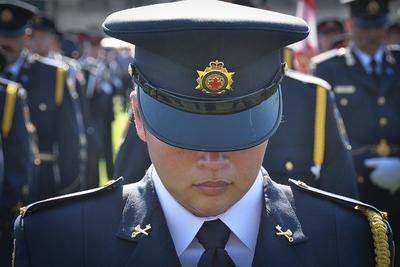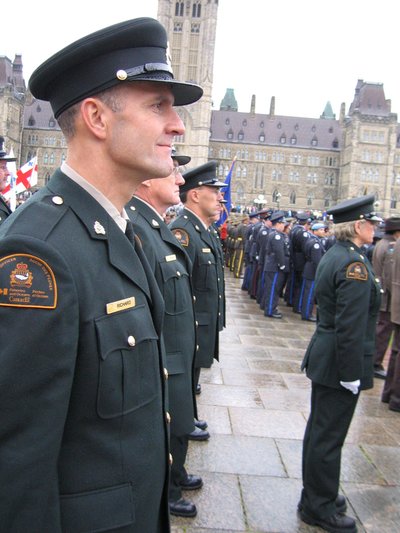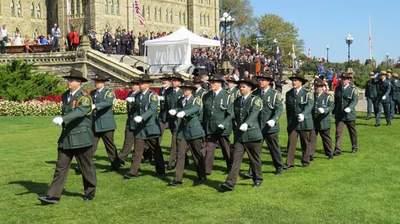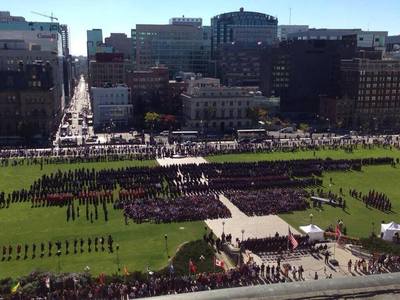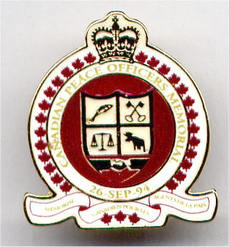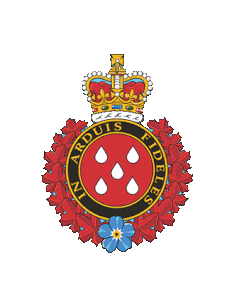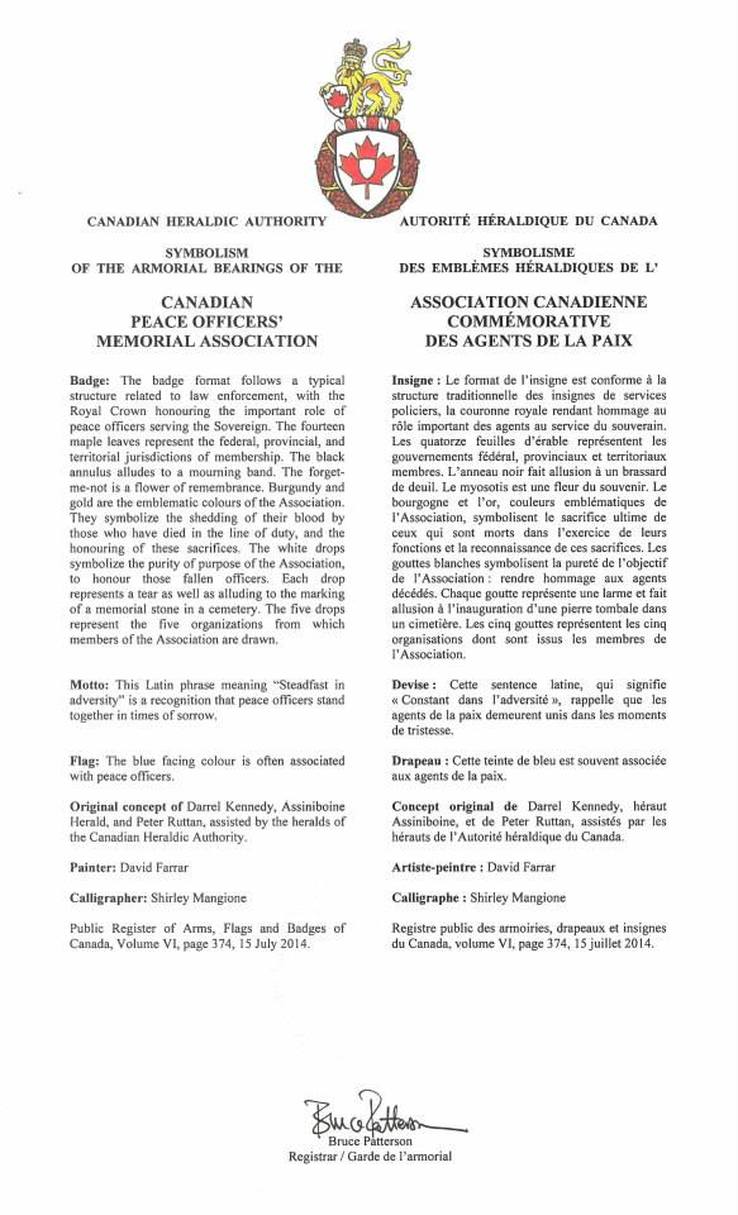CPOMA HISTORY
CPOMA EXECUTIVE BOARD HISTORY
CPOMA EXECUTIVE BOARD HISTORY
On September 14, 1995, in Ottawa, the first meeting of what was to become the Canadian Peace Officers' Memorial Association (CPOMA) was held. Once the decision to create CPOMA was made, work began to formalize the first commemorative ceremony for police and peace officers. On Sunday September 29, 1996, the first unified commemorative sceremony for police and peace officers was held on Parliament Hill in Ottawa.
The first CPOMA executive board in 1996 was:
Chair: Vince Murray
Vice President: Gary Martin
Treasurer: Gaston Ethier
Secretary: Marie Bean
The first CPOMA executive board in 1996 was:
Chair: Vince Murray
Vice President: Gary Martin
Treasurer: Gaston Ethier
Secretary: Marie Bean
CPOMA FOUNDING PRESIDENT
VINCENT JAMES MURRAY
1948-2014
When Vince Murray arrived in Canada from his native Ireland, he was already infused with the desire and energy to leave a mark in his newly adopted Country. In his early years Vince's experiences were varied and interesting. He travelled from east to west, observing the similarities and differences of its communities and people while gradually discerning the national values of Canadians. Eventually Vince found the vocation that had always fascinated and appealed to him. This was to serve his country as a "peace officer".
He became a Correctional Officer with what is now the Ontario Ministry of Community Safety and Correctional Services. Soon noted were Vince's sense of community service, his appreciation of fairness, his comprehension of the need to recognize the sacrifices of others, principles he personally held dear. These values inspired him to embark upon a campaign to honour a specific group of public servants whose contributions had been ignored for the entire history of Canada. These were the multitudes of "peace officers" who had been critical in establishing a free and law abiding country that had emerged to be the envy of the world. So he began, first within his own agency, but then on a national basis, to establish an organization and then a movement, to have Canadian "peace officers" recognized.
Nowadays the concept of recognizing the on-duty deaths of peace officers seems appropriate; not unusual, just what you might expect. This was not always so. The recognition being afforded today did not come easily. Police officers killed on duty, armed forces personal who died in battle; we are long accustomed to honouring these. But the movement to have the public, media, and governments formally acknowledge the ultimate contribution of "peace officers" started in earnest just a few years ago. This movement was kicked out of the starting blocks, urged along the way, and driven home principally by Vince Murray.
There are thousands "peace officers" in this country who enforce the almost immeasurable body of statutes and regulations that allow us to live in an orderly, safe and efficient society. Before Vince and the evolution of the Canadian Peace Officers' Memorial Association (CPOMA), the public acknowledgement of those “peace officers” who had died on duty was as silent as the graves in which they lay.
Vince gave them a voice through his own arguments and petitions. It was not easy - not all were convinced with the certainly possessed by Vince Murray that this was a worthy cause. The obstacles were many and took much perseverance and commitment to overcome. There was contrary government policy, inter-organizational jealousy, bureaucratic intransigence and more than a couple of inflexible individuals - all standing in the way.
The first step was to build an organization. From its inception by Vince to its realization as the premier, national body whose purpose was to see that "peace officers" who died on duty were memorialised, it was driven by Vince. He was the heart and the champion of what would become the Canadian Peace Officers' Memorial Association - the CPOMA. Vince was, from the first, the engine that drove it. Through all the frustrations, disappointments and trials - Vince stayed the course.
He wasn't always diplomatic but Vince was intensely determined to see it through. It was a cause he believed in and one he pursued unwaveringly. He was never cowed by authority or office. Yet he was deeply respectful of the ideals that great institutions were meant to represent. Vince was intense when it came to the CPOMA. It was his energy and commitment to the cause, more than that of any other that made the CPOMA what it is today. We all try to leave some legacy but few of us can claim anything like a Memorial on the site that hosts the Parliament of Canada. The CPOMA demanded much of Vince - and he gave it - and peace officers across Canada, now and in the future, are in his debt.
It was Vince who choose the motto of the CPOMA - "in arduis fidelis". It was he, during those hard, formative years; through to eventual success and then all during his later years of ill health, who was most certainly: "steadfast in adversity".
In 2018, in recognition of Vince's outstanding contribution to CPOMA, a scholarship was established in his memory.
He became a Correctional Officer with what is now the Ontario Ministry of Community Safety and Correctional Services. Soon noted were Vince's sense of community service, his appreciation of fairness, his comprehension of the need to recognize the sacrifices of others, principles he personally held dear. These values inspired him to embark upon a campaign to honour a specific group of public servants whose contributions had been ignored for the entire history of Canada. These were the multitudes of "peace officers" who had been critical in establishing a free and law abiding country that had emerged to be the envy of the world. So he began, first within his own agency, but then on a national basis, to establish an organization and then a movement, to have Canadian "peace officers" recognized.
Nowadays the concept of recognizing the on-duty deaths of peace officers seems appropriate; not unusual, just what you might expect. This was not always so. The recognition being afforded today did not come easily. Police officers killed on duty, armed forces personal who died in battle; we are long accustomed to honouring these. But the movement to have the public, media, and governments formally acknowledge the ultimate contribution of "peace officers" started in earnest just a few years ago. This movement was kicked out of the starting blocks, urged along the way, and driven home principally by Vince Murray.
There are thousands "peace officers" in this country who enforce the almost immeasurable body of statutes and regulations that allow us to live in an orderly, safe and efficient society. Before Vince and the evolution of the Canadian Peace Officers' Memorial Association (CPOMA), the public acknowledgement of those “peace officers” who had died on duty was as silent as the graves in which they lay.
Vince gave them a voice through his own arguments and petitions. It was not easy - not all were convinced with the certainly possessed by Vince Murray that this was a worthy cause. The obstacles were many and took much perseverance and commitment to overcome. There was contrary government policy, inter-organizational jealousy, bureaucratic intransigence and more than a couple of inflexible individuals - all standing in the way.
The first step was to build an organization. From its inception by Vince to its realization as the premier, national body whose purpose was to see that "peace officers" who died on duty were memorialised, it was driven by Vince. He was the heart and the champion of what would become the Canadian Peace Officers' Memorial Association - the CPOMA. Vince was, from the first, the engine that drove it. Through all the frustrations, disappointments and trials - Vince stayed the course.
He wasn't always diplomatic but Vince was intensely determined to see it through. It was a cause he believed in and one he pursued unwaveringly. He was never cowed by authority or office. Yet he was deeply respectful of the ideals that great institutions were meant to represent. Vince was intense when it came to the CPOMA. It was his energy and commitment to the cause, more than that of any other that made the CPOMA what it is today. We all try to leave some legacy but few of us can claim anything like a Memorial on the site that hosts the Parliament of Canada. The CPOMA demanded much of Vince - and he gave it - and peace officers across Canada, now and in the future, are in his debt.
It was Vince who choose the motto of the CPOMA - "in arduis fidelis". It was he, during those hard, formative years; through to eventual success and then all during his later years of ill health, who was most certainly: "steadfast in adversity".
In 2018, in recognition of Vince's outstanding contribution to CPOMA, a scholarship was established in his memory.
INITIAL CPOMA EMBLEM (1994)
IN ARDUIS FIDELES _ Steadfast in Adversity
14 leaves = 10 Provinces, 3 Territories, 1 Federal
Crown = Queen Elizabeth
Fish = Fisheries & Oceans Canada
Keys = Corrections
Scales = Justice
Moose = Conservation
Hands = Customs & Excise (now Border Services)
CPOMA Colours = Burgundy & Gold
14 leaves = 10 Provinces, 3 Territories, 1 Federal
Crown = Queen Elizabeth
Fish = Fisheries & Oceans Canada
Keys = Corrections
Scales = Justice
Moose = Conservation
Hands = Customs & Excise (now Border Services)
CPOMA Colours = Burgundy & Gold
CPOMA NEW ARMORIAL BEARINGS (2014)

